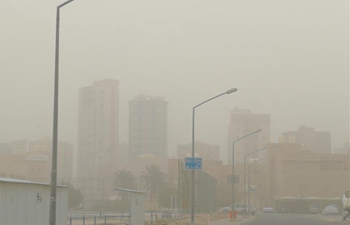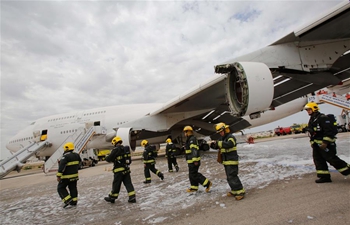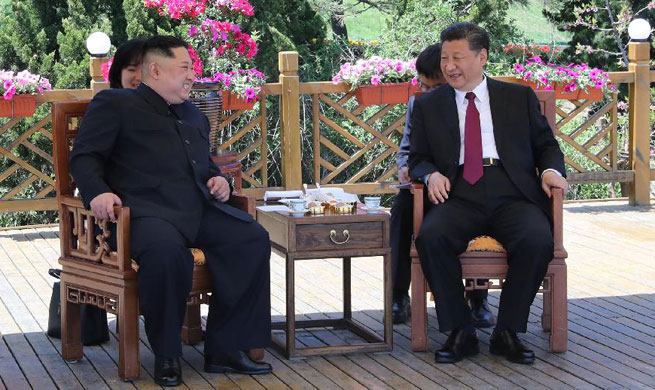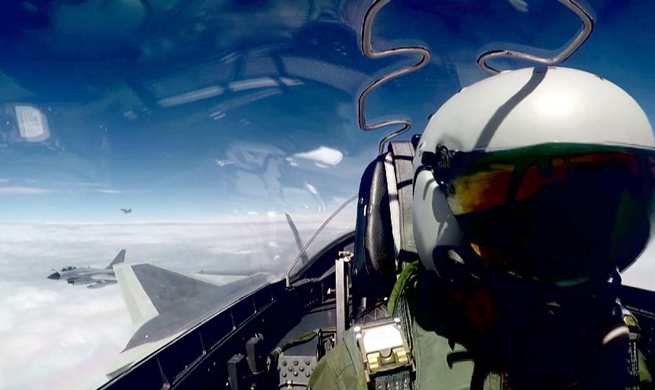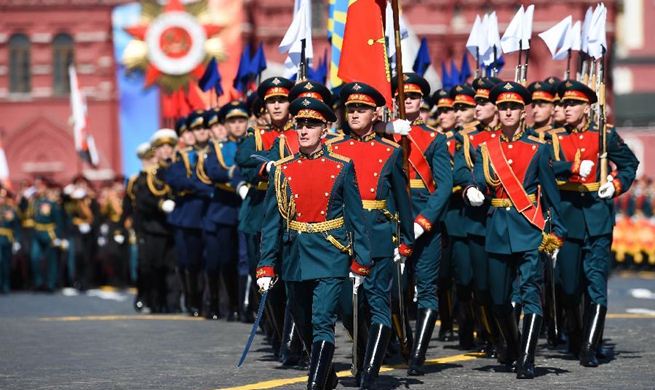ANKARA, May 9 (Xinhua) -- Turkey strongly expressed its disapproval for the new sanctions to be imposed by the U.S. against Iran after the Trump administration's decision to withdraw from a 2015 nuclear deal with Tehran.
Turkish Economy Minister Nihat Zeybekci said on Tuesday that despite the United States' decision, "Turkey will continue to trade with Iran as much as possible and will not be answerable to anyone else."
"From now on we will carry out our trade with Iran within the possible framework until the end. We will not give account to anyone for this," Zeybekci said in a televised interview.
Asked about possible implications of U.S. sanctions on trade relations between Turkey and Iran, Turkish Presidential spokesperson Ibrahim Kalin stated that Iran is an important neighboring country and trade partner of Turkey despite some disagreements in the regional issues such as in Syria and Iraq.
"First we should see details of the new sanctions regime. Because they affect not only the U.S. but also Turkey, Turkish companies, European firms. On the other hand, we don't want Iranian people suffer this decision. We will not hesitate to discharge responsibility," Kalin told reporters on Wednesday.
Trade volume between Turkey and Iran reached an all-time high in 2012 with a total of 21.9 billion U.S. dollars, but later fell sharply till 2017.
Turkey engaged with Russia and Iran in 2017 in order to seek resolution to Syrian conflict, when ties between Ankara and Washington strained due to conflict of their interests in Syria. Political rapprochement between Ankara and Tehran paved way for increasing trade volume to 10.7 billion U.S. dollars in 2017.
According to figures of Turkey's state-run Anadolu Agency, Iran exported 7.4 million tons of oil in the first seven months of 2017 compared to 3 million in the January-July 2016 period.
Turkey also buys around 10 billion cubic meters of gas annually from Iran, which is the second gas exporter to the neighboring country.
The sanctions will not influence Turkey's purchase of natural gas from Iran, but the problem would be about money transaction for its payment, Erdal Saglam, daily Hurriyet columnist and expert on economy told Xinhua.
He noted that the previous U.S. sanctions were basically targeting the banking system, not the sale of natural gas.
The Turkish government says it will maintain trade with Iran, but the terms of this trade is very important when a court case about gold-for-oil scheme to bypass previous U.S. economic sanctions against Iran is considered.
A court case in the U.S. accuses Turkey of helping Iran evade biting U.S. sanctions by providing billions of U.S. dollars-worth of gold in exchange for Iranian natural gas and oil and Turkey's state-owned Halkbank processed the transactions.
Reza Zarrab, a Turkish citizen of Iranian origin, and Hakan Atilla, deputy general manager of Halkbank, both face charges in a U.S. court of violating previous UN sanctions against Iran and money laundering.
They are accused of helping Iran bypassing sanctions with the help of the Turkish banks, yielding Tehran an estimated 13 billion U.S. dollars between March 2012 and July 2013.
Moreover, Halkbank is at the risk of facing a penalty by Treasury's Office of Foreign Assets Control (OFAC), which is responsible for enforcing the nation's sanctions laws.
As crude oil prices climbing higher now after U.S. pulls out of the Iran nuclear deal, fuel oil prices will increase in Turkey, Saglam said, adding that second factor for the increase will be Turkish lira struggling against U.S. dollar.
The expert said U.S. withdrawal from the nuclear pact will make multiplier effects on lira which has been under severe pressure for months, amid rising global geopolitical risks and range problems in Turkey's economic parameters including persistently high inflation.
Following U.S. President Donald Trump decided to pull his country out of the international nuclear deal with Iran on May 8, lira dropped below 4.37 against U.S. dollar on May 9.
Turkish President Recep Tayyip Erdogan summoned the government's economic administration for an urgent meeting on Wednesday to discuss recent economic developments and steps to tackle rising exchange rates.




